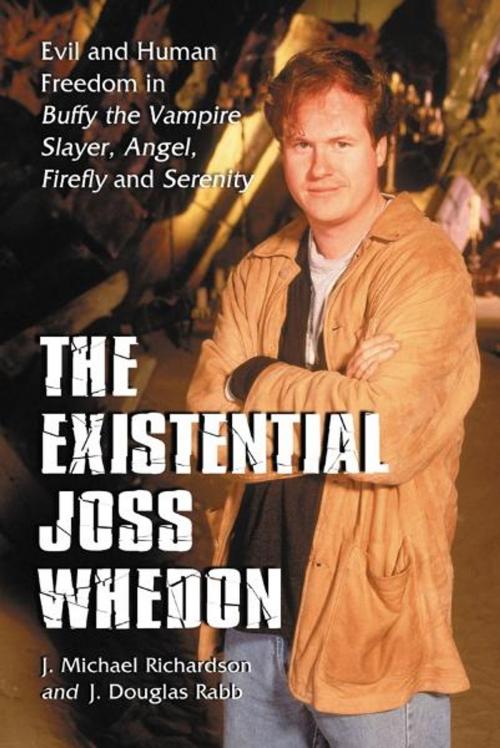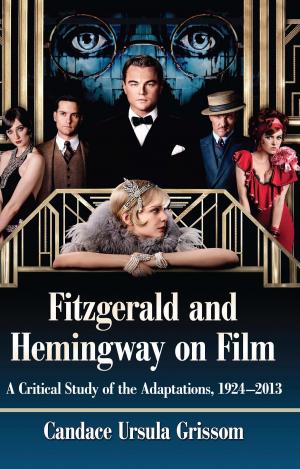The Existential Joss Whedon: Evil and Human Freedom in Buffy the Vampire Slayer, Angel, Firefly and Serenity
Evil and Human Freedom in Buffy the Vampire Slayer, Angel, Firefly and Serenity
Nonfiction, Entertainment, Television, Performing Arts| Author: | J. Michael Richardson, J. Douglas Rabb | ISBN: | 9780786455300 |
| Publisher: | McFarland | Publication: | December 6, 2006 |
| Imprint: | McFarland & Company, Inc., Publishers | Language: | English |
| Author: | J. Michael Richardson, J. Douglas Rabb |
| ISBN: | 9780786455300 |
| Publisher: | McFarland |
| Publication: | December 6, 2006 |
| Imprint: | McFarland & Company, Inc., Publishers |
| Language: | English |
This study examines the major works of contemporary American television and film screenwriter Joss Whedon. The authors argue that these works are part of an existentialist tradition that stretches back from the French atheistic existentialist Jean-Paul Sartre, through the Danish Christian existentialist Soren Kierkegaard, to the Russian novelist and existentialist Fyodor Dostoevsky. Whedon and Dostoevsky, for example, seem preoccupied with the problem of evil and human freedom. Both argue that in each and every one of us "a demon lies hidden." Whedon personifies these demons and has them wandering about and causing havoc. Dostoevsky treats the subject only slightly more seriously.Chapters cover such topics as Russian existentialism and vampire slayage; moral choices; ethics; Faith and bad faith; constructing reality through existential choice; some limitations of science and technology; love and self-sacrifice; love, witchcraft, and vengeance; soul mates and moral responsibility; love and moral choice; forms of freedom; and Whedon as moral philosopher.
This study examines the major works of contemporary American television and film screenwriter Joss Whedon. The authors argue that these works are part of an existentialist tradition that stretches back from the French atheistic existentialist Jean-Paul Sartre, through the Danish Christian existentialist Soren Kierkegaard, to the Russian novelist and existentialist Fyodor Dostoevsky. Whedon and Dostoevsky, for example, seem preoccupied with the problem of evil and human freedom. Both argue that in each and every one of us "a demon lies hidden." Whedon personifies these demons and has them wandering about and causing havoc. Dostoevsky treats the subject only slightly more seriously.Chapters cover such topics as Russian existentialism and vampire slayage; moral choices; ethics; Faith and bad faith; constructing reality through existential choice; some limitations of science and technology; love and self-sacrifice; love, witchcraft, and vengeance; soul mates and moral responsibility; love and moral choice; forms of freedom; and Whedon as moral philosopher.















